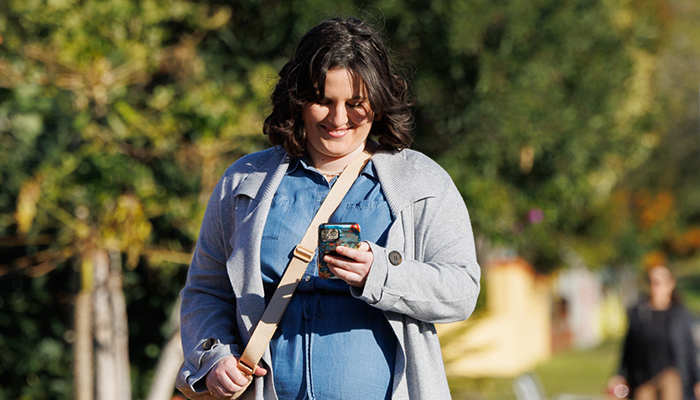
Managing your weight
Understanding your weight is the first step. Our discussion guide can help you prepare for a productive conversation with a doctor about weight management.
The world we live in and the food we eat have dramatically changed over time. But our biology has largely stayed the same. It can trigger us to believe that we are at risk of starvation, and make us look for food rich in energy, salt, fat and sugar.1,2
TimPascoePhoto0081.png)
Think about our everyday life: most of us commute by car or public transportation to work. We have elevators and escalators to take us where we need to go without a drop of sweat. Office jobs, working from home and city life often mean that we have to sit more and for extended periods of time. We are surrounded by lots of tasty food and drink that we have easy access to. And there’s so much to worry about and catch up on — whether it’s at work, in our private lives or on social media. So, we sleep less and stress more.
But not many of us are aware of how all these things are linked to developing overweight and obesity. In order to understand this, we need to travel back in time.
“Eat or be eaten!” Imagine living 50,000 years ago in the Stone Age. All our ancestors cared about was chasing calories through hunting, gathering or fishing. That, and avoiding becoming meal of the day for large predators.1,2
Food was scarce, so being well-fed meant a higher chance of survival, and also a higher chance of reproduction. The key to success was getting hold of food with a lot of fat, sugar and salt. That’s why our bodies have learned to look out for and favour energy-rich foods to get through periods of famine.1,2
The global rise in obesity is not the result of a sudden loss of willpower. Instead, weight gain is understood as a natural reaction to living in an environment that has changed faster than our species has been able to adapt to.
You might now think that we must be quite different from our ancestors. But the systems that helped them to survive are still active in our bodies today and often work outside our conscious awareness.1-3
Food manufacturers, supermarkets, restaurants and take-away chains have picked up on our food preferences. They now offer a huge variety of cheap, delicious and energy-rich foods that combine salt, sugar and fat. This is a powerful combination for our senses — far more powerful than our brains have evolved to deal with. That’s why it’s hard to resist the enticing smell of food we are now surrounded by.
We shouldn’t be surprised when we super-size our takeaway order or fill our shopping cart even though we are not hungry. Our ability to resist these deliberately tempting foods is determined by a range of factors, including genetics, and varies from person to person.4-6
So, the global rise in overweight and obesity is not the result of a sudden loss of willpower. Instead, weight gain is understood as a natural reaction to living in an environment that has changed faster than our species has been able to adapt to.1-3
13.5 million
Approximately 13.5 million Australian adults are living with overweight and obesity.
It is estimated this figure will rise in 2030 to ~18.5 million Australian adults.8,9
Our modern environment contains many factors that put us at risk of weight gain. A lot of these factors are beyond our control, but fortunately there are still a lot of things we can do. Restructuring your environment is one of them.1-3
For a guide to restructuring your environment, read the article Hack your hunger: How to plan, prepare and eat healthy food.
Understanding your weight is the first step. Our discussion guide can help you prepare for a productive conversation with a doctor about weight management.

Essential tools to monitor your health and have productive conversations with a doctor.
Talk to a doctor about treatment options that could help prevent the weight you lose from coming back.
AU23OB00080 - July 2025

